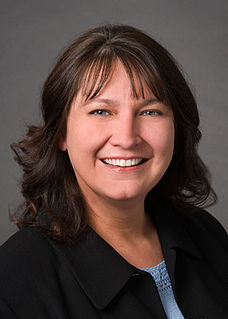A Quote by Suzanne Collins
I think we put our children at an enormous disadvantage by not educating them in war, by not letting them understand about it at an early age.
Related Quotes
One of the reasons it's important for me to write about war is I really think that the concept of war, the specifics of war, the nature of war, the ethical ambiguities of war, are introduced too late to children. I think they can hear them, understand them, know about them, at a much younger age without being scared to death by the stories.
A child born today in the United Kingdom stands a ten times greater chance of being admitted to a mental hospital than to a university ... This can be taken as an indication that we are driving our children mad more effectively than we are genuinely educating them. Perhaps it is our way of educating them that is driving them mad.
In early childhood, children develop a set of symbols that 'stand for' things they see in the world around them... Children are happy with symbolic drawing until about the age of eight or nine... when children develop a passion for realism. Our schools do not provide drawing instruction. Children try on their own to discover the secrets of realistic drawing, but nearly always fail and, sadly, give up on trying.
We must pay attention to the millions of children of this generation who are caught up in armed conflicts. How can we protect them from the worst consequences of war? And when hostilities cease, how can we take the war out of them? By eliminating landmines, controlling the sale of small arms, raising the age of recruitment ... are all essential measures. By reuniting children with their families and providing programs of physical and psychological rehabilitation.
Much of the pressure contemporary parents feel with respect to dressing children in designer clothes, teaching young children academics, and giving them instruction in sports derives directly from our need to use our children to impress others with our economic surplus. We find "good" rather than real reasons for letting our children go along with the crowd.





































